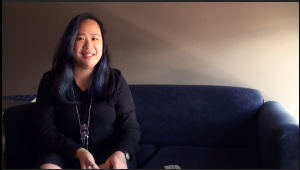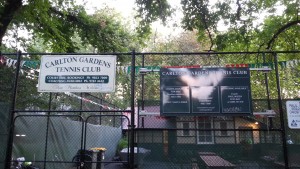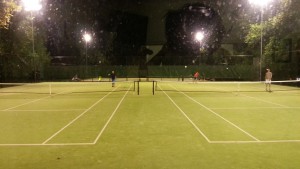Having moved to Melbourne for nearly 3 months, I’ve definitely picked up on some stuffs and learned more things about myself that I never knew I was capable of, and would probably would not be able to expose that part of me if I chose to do my tertiary education back in the comforts of home in Singapore.
For one, I have cooked meals for myself in these 3 months more than I’ve ever cooked for myself or for anyone for that matter in my entire life. Some meals turned out well, some not so, but it’s a learning curve and cycle where you analyse what went wrong and pick up from what did went well and see how you can improve on that. I guess that pretty much works for everything else other than just cooking. This definitely applies to the field of study that I’m in, Media, and the whole pre-production to post-production where there are so many things to accomplish. Murphy’s law states, “anything that can go wrong, will go wrong.” and you can never ignore that, no matter how much preparation you have put into doing the actual thing. There are just so many possibilities of something going wrong that is far beyond your control. For example, if you planned to shoot at a particular location, and you’ve got your permits approved, your talents ready to go, your crew ready for action, but just due to bad luck it started pouring heavily and it stays like that for pretty much most of the day. Are you going to call it quits? Or come up with something else to improvise? Those are the decision one faces when something does not go to plan and it’s beyond one’s control.
Moving here has made me realise suddenly uni isn’t just everything. There are so many things that you have to keep your eye on, like paying your rent on time, making sure there’s always food in the refrigerator at home, making sure that you’ve got your daily necessities like your toiletries, clean clothes, just overall well being. On top of that, you have to manage your own financing. Living in the city comes with its perks of being just 5 minutes walk to RMIT and to major shopping centres, but that also means that everything else would be jacked up sky high in terms of prices. Decent meals would be AUD$7 onwards around the CBD. I would be really contented if I could get away with having lunch less than AUD$10. If anyone has any recommendation to get lunch less than AUD$5, I’m all ears. Of course there’s always Domino’s value pizzas at $5 each, but come on, how long can you go on eating those on a daily basis?
Another thing I didn’t guess I would be so quick on doing would be performing household chores. Back home, everything seemed to be taken care of, but here, no one is going to clean up that pile of dishes you might have used to make dinner, no one is going to wash the toilet or scrub the insides of the showering cubicle. IT’s really all on you. Calling back on my National Service days in the army, we had this thing called “Stand By Area”, which basically means you had to stand by your bunk and the Company Sergeant Major (CSM) would go round inspecting your bunk for the smallest detail of dirt or dust. Obviously, back then, non of us could give two cents about it and just went through the motions of cleaning and tidying up the bunk before standing by our area, just so that we would be granted permission to book out from camp for the weekends. But here it’s really different, although I’m not being placed in the threat of having to stay back in camp to clean up the bunk while others happily make their way home for the weekend, I feel like I am very much responsible for cleaning up every single thing in the apartment as much as I am responsible for my studies in uni, even if it means scrubbing the insides of the toilet bowl, removing the dirt and gunk hidden in the kitchen pipe and so on.
It’s really the matter of being independent, and how long I can go before I press the ‘eject’ button and start booking the next flight out of Melbourne to Singapore. (I strongly hope I don’t resort to this). On the other hand, there is also the freedom I get when I’m here, pretty much not like how I am in Singapore. I answer to no one, I get to make my own decisions, but whether they’re good or bad is a slightly different story. I guess what I’m trying to say is, am I really ready for the world? Only time will tell, just like how only time would tell how the weather would turn out tomorrow.







Recent Comments